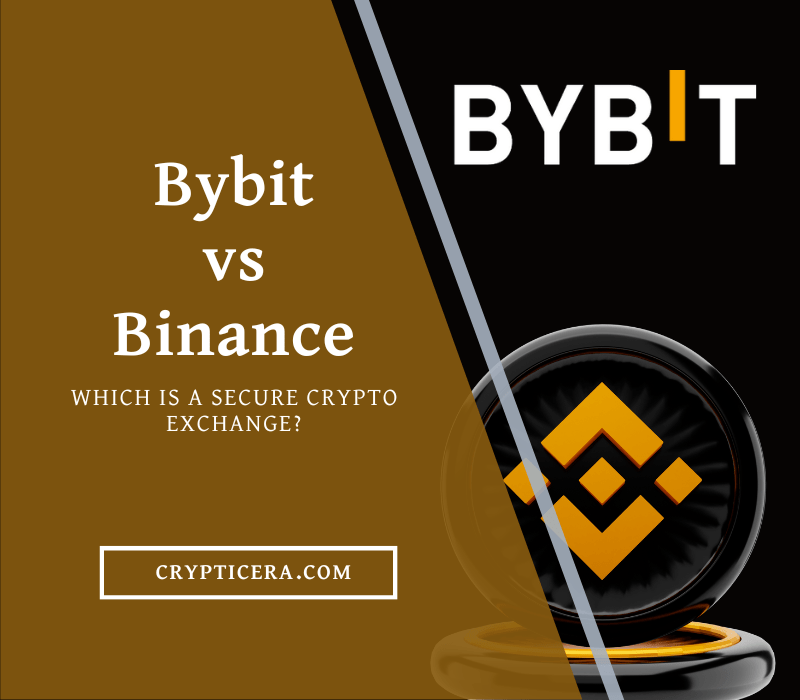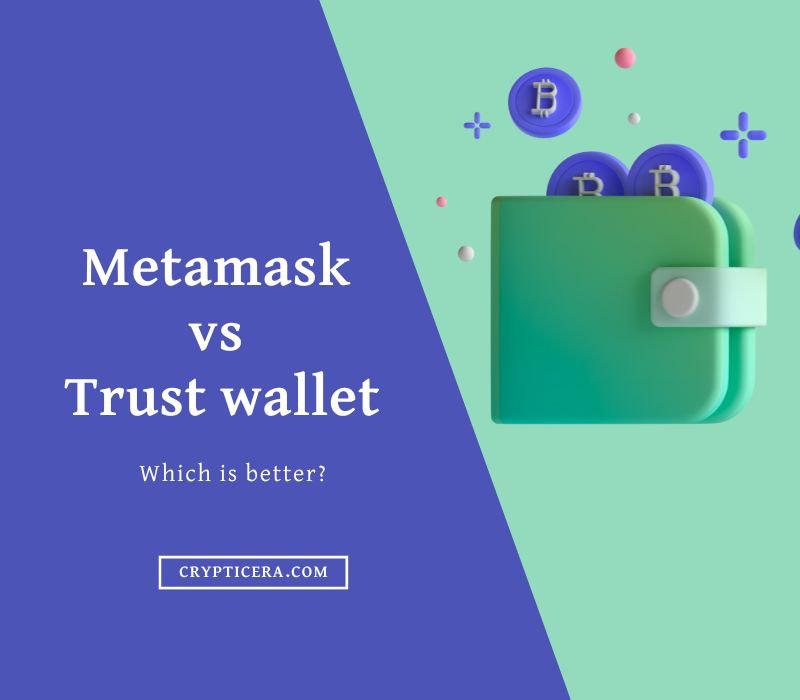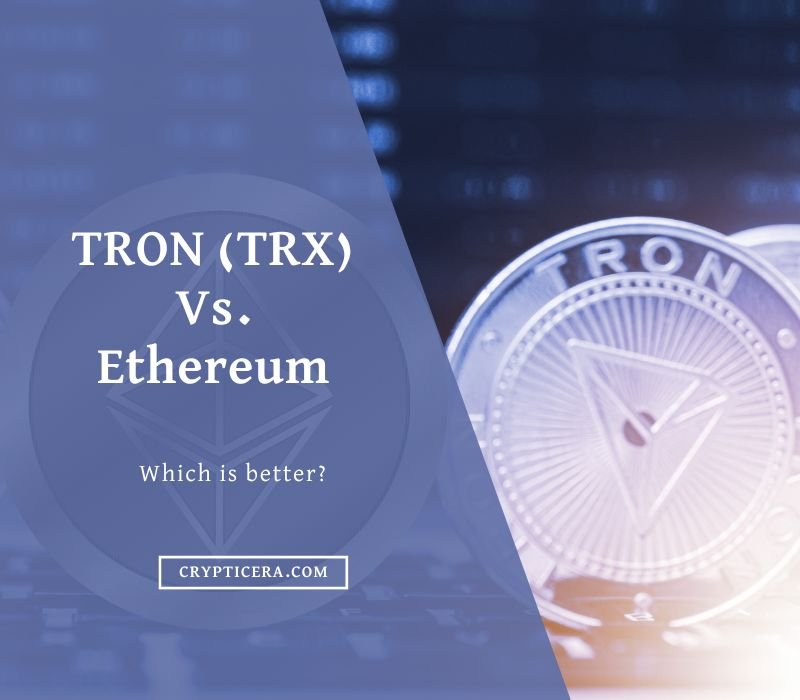When it comes to trading cryptocurrencies, choosing the right crypto exchange is crucial. There are many options available, each with its own set of trading features and fees.
In this article, we will be comparing two popular cryptocurrency exchanges: Bybit vs Binance.
Key Takeaways:
- Binance has been established a year earlier than Bybit, in 2017.
- Binance is thoroughly licensed and regulated, holding more licenses than Bybit.
- Binance lists more spot cryptocurrencies than Bybit.
- Both platforms offer advanced trading concepts and require KYC verification, but Binance supports more fiat currencies and offers more deposit/withdrawal methods.
- Both platforms offer native tokens (BNB for Binance and BIT for Bybit) with different maker/taker fees. Binance has lower fees (0.02% / 0.04% vs 0%/0.02%), but also higher fees (0.1% / 0.1% vs 0.1% / 0.1%) than Bybit.
- Both platforms offer good security measures to protect users’ funds and data.
Read Bybit Review
History and Background
Binance is a cryptocurrency exchange founded in 2017 by Changpeng “CZ” Zhao, a developer who had previously created high-frequency trading software.
It has quickly become one of the largest and most popular cryptocurrency exchanges in the world due to its wide range of supported cryptocurrencies, low fees, and strong security measures.
Bybit is a newer cryptocurrency exchange, founded in 2018 by Ben Zhou. Bybit is focused on providing a fast and easy-to-use platform for trading cryptocurrency derivatives, such as futures and options.
The exchange has gained a reputation for its strong customer support and low fees and has become popular among traders for its fast trade execution and advanced trading features.
Bybit vs Binance: Key Differences
| Bybit | Binance | |
|---|---|---|
| Launched date | 2018 | 2017 |
| Located | Singapore | Malta |
| Founders | Ben Zhou, Denny Zhong | Changpeng Zhao |
| Solvency (TVL) | $56 billion+ | $2.2 billion+ |
| Trading volume | $+ 310 million daily | $8.6+ billion daily |
| Supported digital currencies | 339 | 383 |
| Fiat currencies | EUR, USD, GBP, and 3 more | Over 50 (USD, EUR, GBP) |
| Payment methods | Bank transfer, crypto | Bank transfer, credit/debit cards, crypto |
| Fees | 0.06% | 0.1% |
Bybit Review
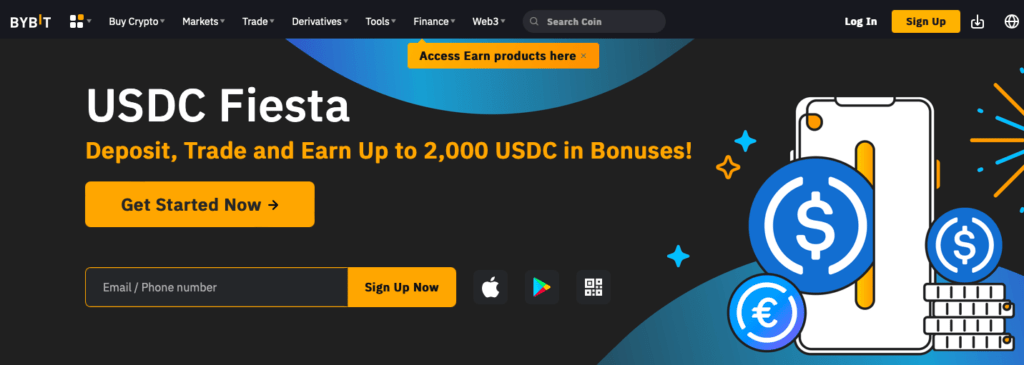
Bybit is a cryptocurrency exchange platform founded in 2018 and headquartered in Singapore. It provides a secure and user-friendly platform for trading cryptocurrencies such as Bitcoin, Ethereum, XRP, EOS, and others with high liquidity.
Bybit offers a variety of trading tools and features including up to 100x leverage for margin trading, real-time price index, 24/7 customer support, and a responsive mobile app.
The platform uses multi-tier and multi-cluster system architecture, making it highly secure and able to handle a large volume of transactions.
Bybit is regulated by the International Financial Services Commission (IFSC) of Belize and has a strong focus on compliance and security.
Key Features of Bybit
- High liquidity: Bybit claims to have one of the highest liquidity levels in the industry, which means that it is easy to buy and sell cryptocurrencies on the platform without significant price slippage.
- Fast execution: Exchange uses an advanced order-matching system that is capable of processing hundreds of thousands of transactions per second, ensuring that trades are executed quickly.
- Leveraged trading: It allows users to trade with leverage. This means that they can trade with more capital than they have available in their account. This can be a useful tool for traders looking to amplify their returns, but it also carries the risk of magnified losses.
- Advanced trading tools: Bybit provides a range of advanced trading tools, including real-time charting, market depth, and trade history, which can be useful for experienced traders.
- Secure platform: It has implemented a range of security measures to protect users’ assets, including multi-factor authentication, cold storage of assets, and SSL encryption.
Binance Review
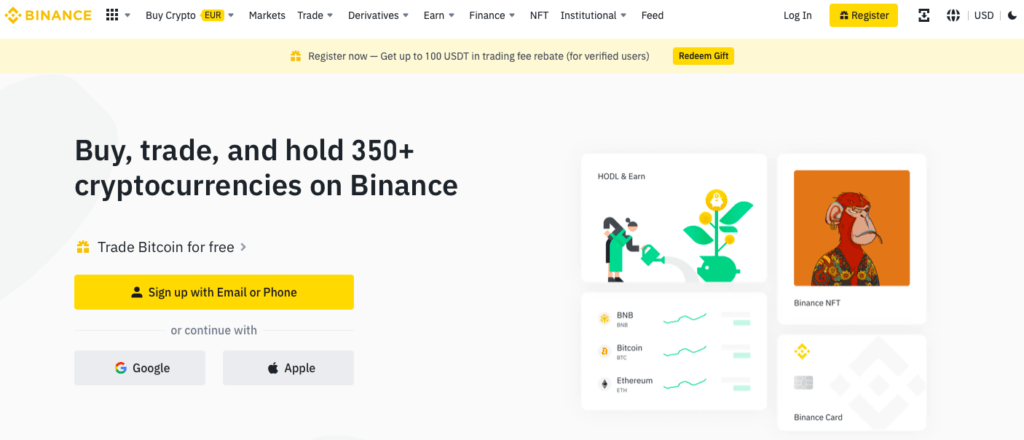
Binance offers a wide variety of digital assets to trade, including popular cryptocurrencies like Bitcoin, Ethereum, and Litecoin, as well as numerous altcoins and token projects. The platform offers both spot trading and margin trading, allowing users to trade with leverage. It also provides a lending platform, where users can earn interest on their cryptocurrency holdings.
Binance also has its own cryptocurrency, Binance Coin (BNB), which is used to pay for trading fees on the exchange and can also be traded like other cryptocurrencies. Binance uses a “maker-taker” fee model, with reduced fees for users who hold BNB.
It is known for its user-friendly interface, low trading fees, and fast transaction processing. The platform has a strong security record, with no reported major security breaches to date.
In addition to its exchange platform, Binance has also launched several other services, including a decentralized exchange (Binance DEX), a cryptocurrency wallet (Trust Wallet), Binance Visa Card, and an incubator for blockchain startups (Binance Labs).
Key Features of Binance Exchange
- Wide range of cryptocurrencies available for trading: Binance offers trading for many different cryptocurrencies, including Bitcoin, Ethereum, and Binance Coin (BNB).
- Low fees: Exchange charges very low fees for trading, with discounts available for users who pay with BNB.
- Advanced trading features: It offers advanced trading features such as margin trading and futures trading, which allow users to trade with leverage and speculate on the future price of cryptocurrencies.
- High liquidity: Binance is one of the largest and most liquid cryptocurrency exchanges, which means that users can buy and sell cryptocurrencies quickly and easily.
- User-friendly interface: Exchange is easy to use that is suitable for both beginner and advanced traders.
- Strong security: Binance places a strong emphasis on security and uses advanced technologies to protect user accounts and prevent cyber attacks.
Also Read: Binance Vs Coinbase: Which is better?
Bybit vs Binance: The Ultimate Comparison
1. Trading Platform Features
Margin and Leverage Trading: Both Bybit and Binance offer margin trading, which allows traders to borrow funds from the exchange to increase their buying power. Bybit offers leverage of up to 100x for certain trading pairs, while Binance offers leverage of up to 125x for popular cryptocurrencies like BTC, ETH, etc.
Leveraged Tokens: Both Exchange offers leveraged tokens. For example, a 3x long ETH token represents a long position in Ethereum with 3x leverage.
Copy Trading: Bybit currently offers copy trading for a lesser number of trading pairs. It is a feature that allows traders to automatically copy the trades of other successful traders. Binance offers a feature called Binance CopyTrade, which allows users to follow and copy the trades of top traders on the platform.
Future Trading: Both offer futures derivatives trading, which allows traders to speculate on the future price of a particular cryptocurrency. Bybit offers perpetual futures, which do not have an expiration date, as well as quarterly futures, which expire at the end of each quarter. Binance offers futures contracts with weekly, bi-weekly, and quarterly expirations.
2. Fees
Bybit’s taker fee ranges from 0.1% to 0.02% depending on the trading volume, while Binance’s taker fee ranges from 0.10% to 0.04%.
Bybit also charges a maker fee for trades that add liquidity to the order book, which ranges from 0.1% to 0. Binance also charges a maker fee of 0.01%. (25% fee discount for BNB Holders on Binance).
Binance Maker Taker Fees
| Level | 30d Trade Volume (BUSD) | Maker / Taker |
|---|---|---|
| Regular User | < 1,000,000 BUSD | 0.1000% / 0.1000% |
| VIP 1 | ≥ 1,000,000 BUSD | 0.0900% / 0.1000% |
| VIP 2 | ≥ 5,000,000 BUSD | 0.0800% / 0.1000% |
| VIP 3 | ≥ 20,000,000 BUSD | 0.0700% / 0.1000% |
| VIP 4 | ≥ 100,000,000 BUSD | 0.0200% / 0.0400%0.0700% / 0.0900% |
| VIP 5 | ≥ 150,000,000 BUSD | 0.0200% / 0.0400%0.0600% / 0.0800% |
Bybit Maker Taker Fees
| Spot | Perpetual & Futures Trading | |||
|---|---|---|---|---|
| VIP Level | Taker Fee Rate | Maker Fee Rate | Taker Fee Rate | Maker Fee Rate |
| Non-VIP | 0.10% | 0.10% | 0.06% | 0.01% |
| VIP 1 | 0.06% | 0.04% | 0.05% | 0.006% |
| VIP 2 | 0.05% | 0.02% | 0.045% | 0.004% |
| VIP 3 | 0.04% | 0.01% | 0.0425% | 0.002% |
| Pro 1 | 0.03% | 0% | 0.04% | 0% |
| Pro 2 | 0.025% | 0% | 0.035% | 0% |
| Pro 3 | 0.02% | 0% | 0.03% | 0% |
3. Security
- Security measures: Both Exchanges implemented security measures such as Two-Factor Authentication (2FA) and Secure Sockets Layer (SSL) encryption to protect users’ accounts and assets.
- Insurance: Binance offers insurance for users’ funds in the event of a hack or other security breach. Bybit does not currently offer insurance for user funds.
- Track record: Binance has a relatively strong track record when it comes to the security of its platform. In 2019, the exchange suffered a security breach in which hackers stole 7,000 Bitcoin, but the company’s Secure Asset Fund for Users (SAFU) covered the loss and no user funds were affected. Bybit, on the other hand, has not suffered any major security breaches to date.
4. Solvency
Solvency refers to the financial stability of a company and its ability to meet its financial obligations. In the context of a cryptocurrency exchange, it would refer to the exchange’s ability to maintain 100% reserve assets, meaning that it holds enough assets in reserve to cover all of the funds held by its users
According to On-chain Data Analysis, Binance is 100% solvent with reserve assets of $55.02 billion (as of Jan 7, 2023). Source: Defilama
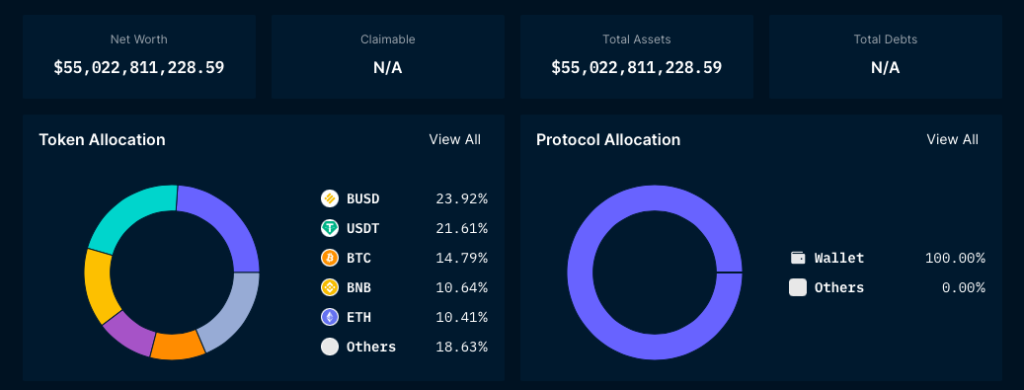
Bybit also has 100% backed assets including USDT, BTC, ETH, BIT, and other cryptocurrencies. (Source: Nansen)
Currently, it holds more than $2 billion in user assets in the form of top cryptocurrencies.
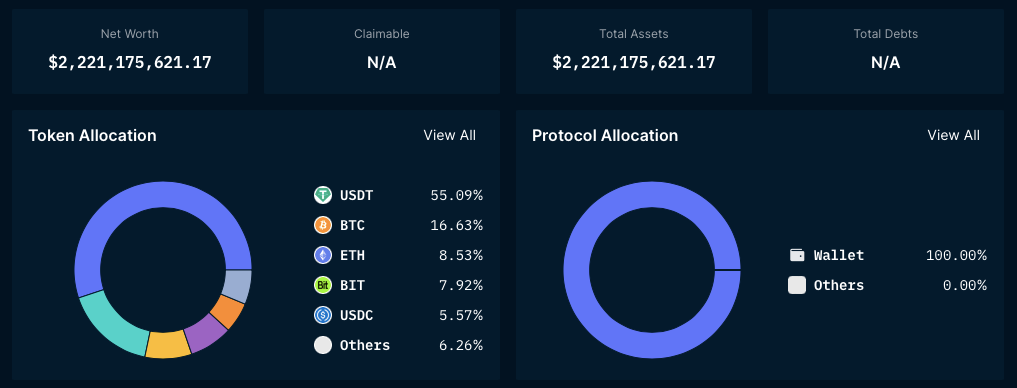
5. No. of Cryptocurrencies Supported
Binance supports 383+ cryptocurrencies, including many of the most popular ones like Bitcoin, Ethereum, and Litecoin, as well as a large number of altcoins.
Bybit also supports 325+ cryptocurrencies, including Bitcoin, Solana, Cardano, and many others. However, the specific number of cryptocurrencies supported cab be changed over time.
6. Fiat and Payment Methods
Both exchanges support P2P deposits and withdrawals. Binance supports a wide range of assets for P2P whereas Bybit supports only USDT, BTC, and ETH.
Bybit allows users to deposit funds using fiat currencies like USD, EUR, GBP, etc. It accepts payments in the form of cryptocurrency deposits and withdrawals.
Binance also allows users to buy and sell cryptocurrencies using fiat currencies in certain regions. These fiat currencies include USD, EUR, GBP, JPY, and 44+ others.
Users can deposit and withdraw funds using traditional payment methods such as bank transfers and credit/debit cards, as well as various cryptocurrency deposits and withdrawals.
Some of the supported cryptocurrencies include Bitcoin, Ethereum, and Binance Coin.
Related Posts:
- Coinbase Vs Bybit Vs Kraken Vs Crypto.com
- How Do Bybit Trading Bots Work
- How Does Bybit Copy Trading Work
- Bybit Vs Kucoin
- Binance Vs Crypto.com
- Binance Vs Kraken
- 5 Risks Involved In Trading Binance Leveraged Tokens
Binance NFT Marketplace

Binance NFT Marketplace is a platform for buying, selling, and trading non-fungible tokens (NFTs) launched by Binance, the world’s leading cryptocurrency exchange.
The marketplace offers a wide variety of NFTs from different creators and artists, including digital art, collectible items, and virtual real estate.
Binance’s NFT marketplace allows creators to mint and sell their own NFTs, and provides a way for collectors to discover and purchase NFTs from a variety of creators.
The marketplace also provides a platform for minting, buying, selling, and trading NFTs, which is built on the Binance Smart Chain.
One of the most significant features of the Binance NFT marketplace is the low transaction fees and fast transaction times, which are made possible by the Binance Smart Chain.
This allows users to purchase NFTs at a lower cost and with greater efficiency compared to other NFT marketplaces.
Another feature of the Binance NFT marketplace is the integration with Binance’s native token Binance Coin (BNB). Binance users can use BNB to purchase NFTs and also receive discounts on transaction fees when using BNB.
Staking: Bybit and Binance Earn
Binance and Bybit are both cryptocurrency exchanges that offer staking options for their users through their “Stake and Earn” features.
Binance Earn offers a wide variety of staking options for different coins, with varying APY (annual percentage yield) and interest rates.
For example, staking Binance Coin (BNB) on Binance Earn can provide an APY of around 10%, while staking Ethereum can provide an APY of around 7%. The exact APY and interest rates can vary depending on the coin being staked, the duration of the stake, and the current market conditions.
Binance Earn also offers flexible staking, which allows users to stake and unstake their coins at any time.
Bybit staking, on the other hand, is focused on staking its native token, BIT. The program offers a daily payout of rewards in the form of BIT tokens, with the APY varying depending on the number of BIT tokens staked.
According to current statistics, the APY for Bybit staking can range from around 20% to 30%. Bybit also offers a referral program, where users can earn additional rewards for referring friends to the platform.
Must Read: Bybit Vs Kucoin: Secure Crypto Exchanges
How to register on Bybit?
To register on Bybit, follow these steps:
- Go to the Bybit website (https://www.bybit.com/).
- Click on the “Sign Up” button in the top right corner of the page.
- Enter your email address and create a password.
- Click on the “Send Verification Code” button to receive an email with a verification code.
- Enter the verification code in the space provided.
- Click on the “Create Account” button.
- You will then be asked to complete the registration process by providing some personal information, such as your name, country of residence, and phone number.
- Once you have provided all of the required information, click on the “Create Account” button to complete the registration process.
Note: Some countries may have additional requirements for registration, such as providing proof of identity or completing a KYC (Know Your Customer) process. If you are asked to provide any additional information, follow the prompts to complete the process.
How to Buy Crypto On Binance?
Here are the steps to buy cryptocurrency on Binance:
- Create an account on Binance.com.
- Verify your account by submitting the required identification documents.
- Enable two-factor authentication for added security.
- Click on the “Funds” tab and then “Deposits.”
- Search for the cryptocurrency that you want to buy and click “Deposit.”
- You will be shown a wallet address. Use this address to send your cryptocurrency from your external wallet to your Binance account.
- Once your deposit has been credited to your account, click on the “Exchange” tab.
- Select the “Basic” or “Advanced” trading interface.
- Choose the “Buy” option and select the cryptocurrency that you want to buy.
- Enter the amount of cryptocurrency that you want to buy, or the amount of fiat currency that you want to spend, and place the order.
Conclusion
In conclusion Bybit vs Binance, both popular cryptocurrency exchanges that offer a wide range of trading options and features.
While Binance is known for its large selection of coins and low fees, Bybit stands out for its advanced trading tools and high liquidity.
Ultimately, the best exchange for you will depend on your personal trading needs and preferences. Do your research, compare the two platforms, and choose the one that best fits your needs.
FAQs
Are Bybit and Binance the same?
Bybit and Binance are both popular cryptocurrency exchanges that offer a variety of trading features. It includes spot, margin, future, leveraged tokens, and Copy trading. Bybit also offers grid trading bits, whereas Binance does not. Bybit also has a better fee structure than binance.
Is Bybit and Binance Safe?
Bybit and Binance are both considered to be reputable and safe exchanges for trading cryptocurrencies. However, as with any exchange, it is important to take proper security precautions such as enabling two-factor authentication and storing your funds in a hardware wallet. Additionally, you should always research the exchange and read reviews from other users before depositing any funds.
Which countries Cannot use Bybit?
Bybit doesn’t provide its services to users in certain regions including the United States, Canada, Syria, North Korea, etc.
